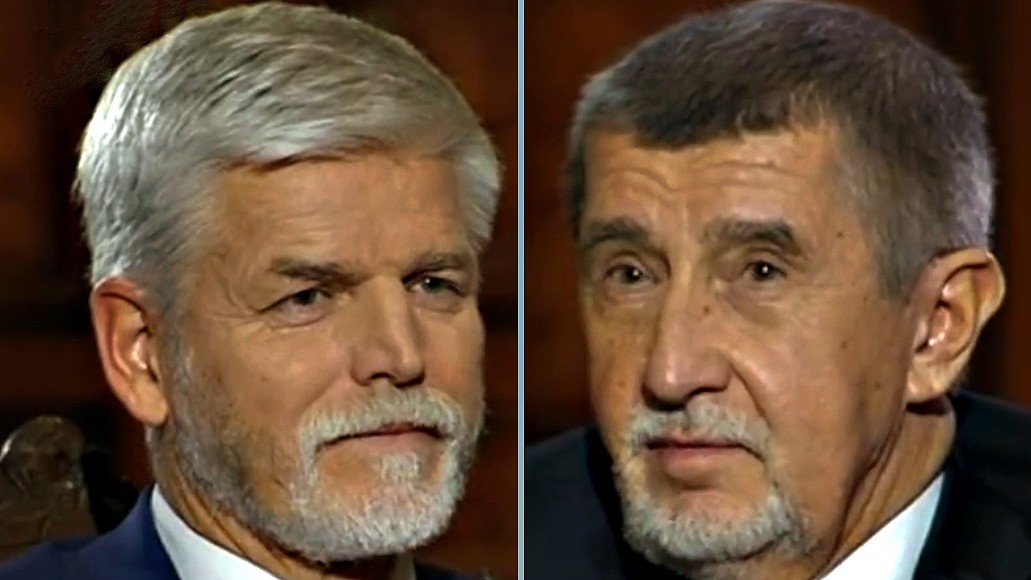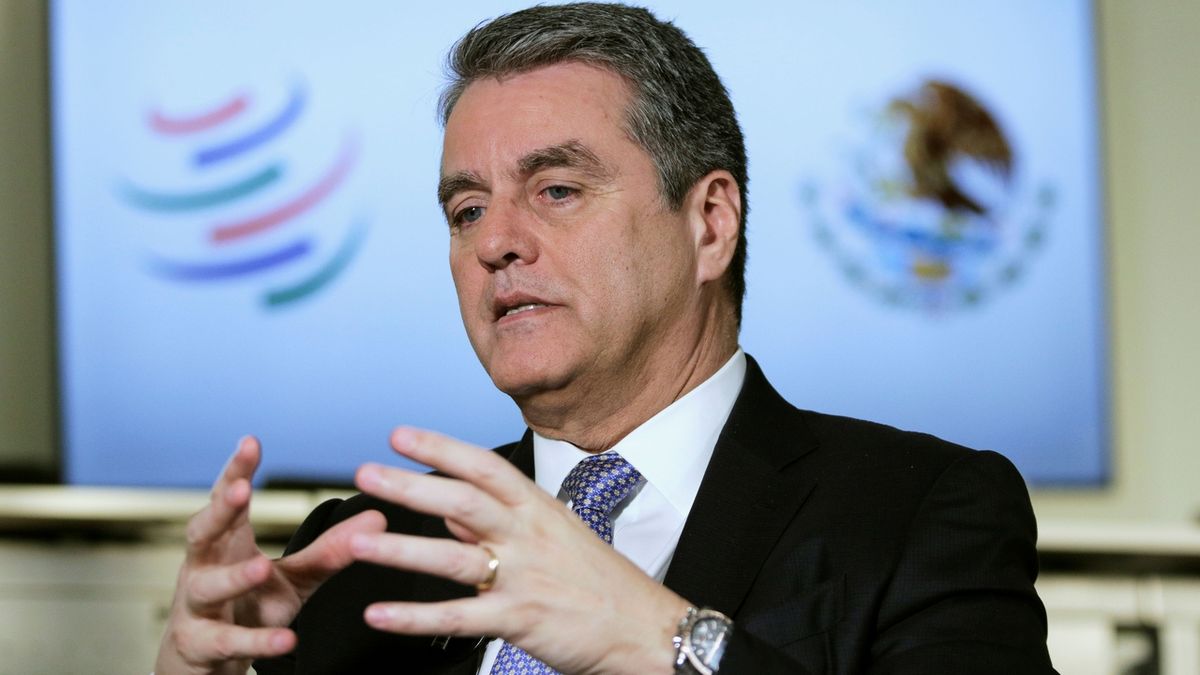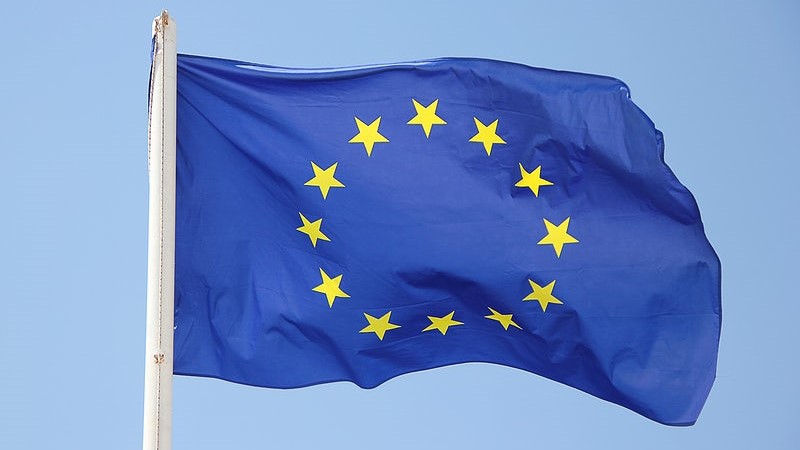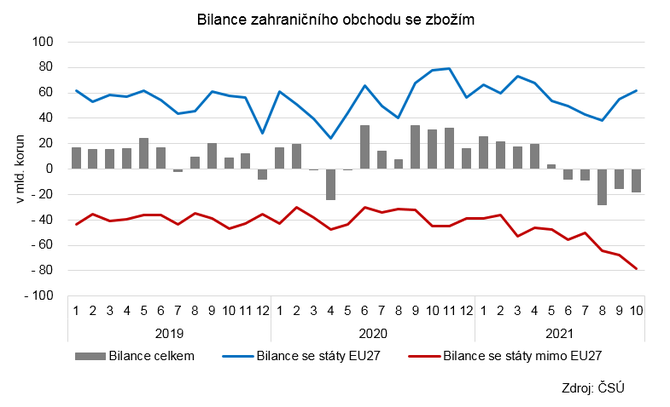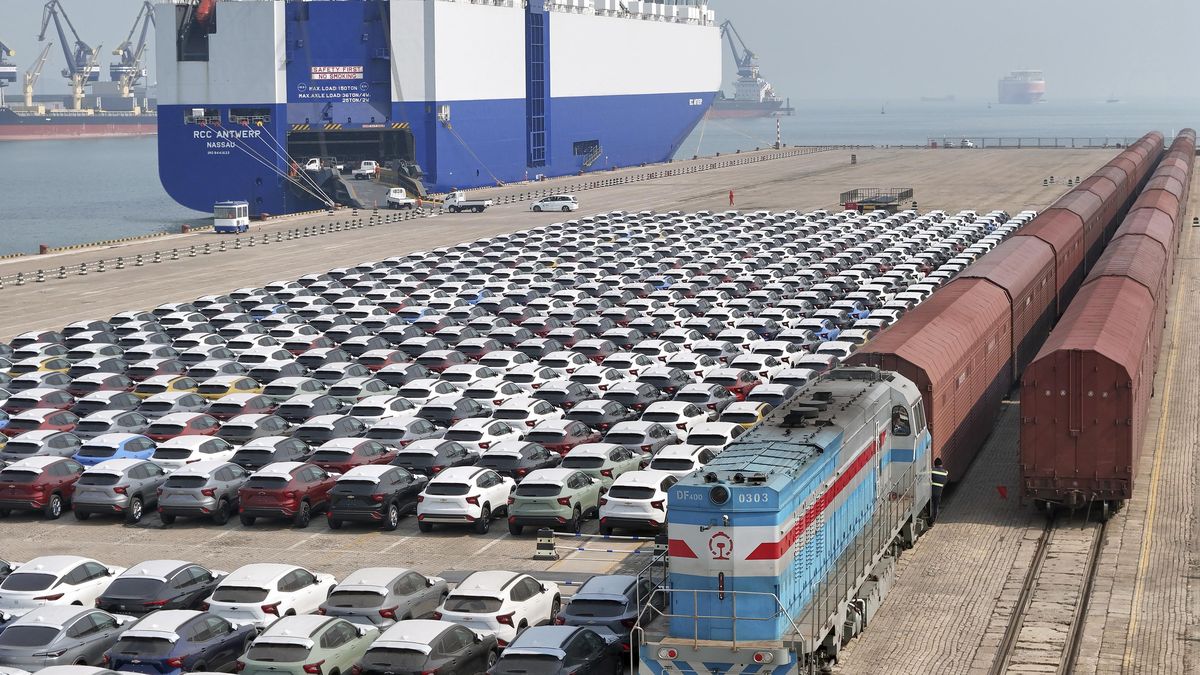Sharp accusations of reciprocity marked today’s presidential debate on Czech TV between former Czech army and NATO high representative Petr Pavlo and former prime minister Andrej Babiš (ANO). Babiš later corrected his mistake that he would not send troops to help in the event of an attack on a NATO member state, saying that he would of course abide by Article Five of the North Atlantic Treaty.
Babiš initially refused to participate in the ČT debate, but he did so at the last minute and said he changed his mind after today’s visit to a service for the motherland at St. Paul’s Cathedral. Vitus at Prague Castle, which he, like Pavel, attended. “Today, we were at a service presided over by Cardinal (Archbishop of Prague Jan) Graubner. In fact, he challenges us and Jesus also said, he challenges people, start thinking differently. And he spoke of truth, love and justice. So I started to think differently, I changed my mind,” Babiš replied when asked by the moderator why he changed his mind.
For example, Babiš again claims about Pavlov that he had talked about war all his life and did not believe in peace. Pavel replies that, on the contrary, he is fighting for peace and that Babiš “is everywhere he goes”. They also argued about their past, about which of them had more problems with the communist regime and how they dealt with it after 1989. They even disagreed on which of them divided the country more.
Debate transcripts are on the ČT24 website HERE.
Among other things, Babiš again accused Pavel of wanting to send soldiers to Ukraine. While quoting from Pavel’s Twitter account, Pavel said that he was writing about securing the humanitarian corridors. “You have misunderstood the contents of this tweet,” he said. Pavel thought that Babiš was running an unfair campaign and he should apologize for that, which his opponent dismissed and said he had nothing to apologize for. Pavel and Babiš quarrel over the economy. According to Pavel Babiš, the country was in debt, which the former prime minister refused to do.
We must not be afraid to do more for Ukraine – to offer, for example, NATO forces and air support to secure evacuation corridors and protect civilians within them. Our strength and determination to use it is the only option to stop a humanitarian catastrophe.
— Petr Pavel (@general_pavel) March 8, 2022
When asked by the moderator what Babiš discussed with communist politician Josef Skála and SPD deputy Jaroslav Foldyna during his visit to Děčín last week, Babiš said that he spoke to Foldyna because he is a deputy. “As for Mr. Skála, he comes there in Děčín, he has a podcast, we don’t talk at all,” said Babiš. He adds that Skála, who is described as a Stalinist, welcomed the invading troops in 1968, as did Pavel. This is really not normal. Then at least occasionally try to tell the truth,” Pavel answered.
Regarding aid to Ukraine, Babiš said there was no reason to reduce the comfort of Czech citizens. Pavel told him that it was something that he thought was foreign to Babiš, and that it was solidarity. He added that Czech aid to Ukraine had the result of reducing some of the comforts, but that it was the fault of the war started by Russia. Babiš said that NATO and the EU are helping Ukraine, but the government is not helping Czech citizens. Pavel also tells Babiš that he is a messy micro-manager and he says a lot of nonsense in discussions. At other times, he called Babiš’s claims outrageous.
Babiš said that he would not send soldiers to help in the event of an attack on Poland or the Baltics; he corrected his words after the debate
Andrej Babiš later corrected his remarks from the debate and stated that if a NATO member state were indeed attacked, Article Five of the North Atlantic Treaty on Collective Defense and Mutual Assistance of NATO countries “would obviously be complied with”. Earlier, in discussions with Petr Pavlo, he stated the moderator’s question that in the theoretical case of an attack on Poland or the Baltic countries, he would not send Czech soldiers to help the attacked country, which, like the Czech Republic, would. become a member of NATO.
Petr Pavel said that the Czech Republic, as a NATO country, has an obligation to assist other member countries in the event of an attack. The Czech Republic has been a member of the North Atlantic Alliance since 1999, as has Poland. Five years later, NATO expanded to include the three Baltic countries.
“In a duel, I in no way wish to answer a hypothetical question about invading Poland or the Baltics. I am sure that will not happen, and I do not want to admit it at all. It is the responsibility of world politicians to prevent war. But if an attack does occur , I will of course comply with Article 5. There is no debate about that,” Babiš said on Twitter.
In duels @TVCeko I in no way wish to answer a hypothetical question about invading Poland or the Baltics. I’m sure that won’t happen, and I don’t want to admit it at all. It is the responsibility of world politicians to prevent war.
— Andrej Babis (@AndrejBabis) January 22, 2023
The North Atlantic Treaty, which formed the foundation of NATO in 1949, stated in Article Five that an armed attack against a member state in Europe or North America would be considered an attack against all members of the alliance. In such cases, the other member states, in cooperation with other countries, shall take such action as they deem necessary, including the use of armed force. Article Five has only been used once in NATO history, by the United States after the attack on the World Trade Center in New York on September 11, 2001, followed by the wars in Afghanistan and Iraq.
One of the questions discussed by the presidential candidates is whether the Czech Republic should send its troops into open conflict in the hypothetical case of an attack on Poland or the Baltic states. “No, of course not. I want peace, I don’t want war. And under no circumstances will I send our children and our daughters to war,” Babiš said when asked by the moderator. But he described the question as purely theoretical and emphasized that the main thing is to prevent war.
Pavel, who used to lead the Czech army and was chairman of the NATO Military Committee, only reminded of article five. “When we are already members of such an organization, we not only benefit from it in terms of collective security, but we also contribute something to it. And it is our commitment to participate together when others are attacked,” he said.
The appointment of the chairman of the Constitutional Court is said to be not on the agenda
Babiš said that, according to President Milos Zeman, the appointment of a new president of the Constitutional Court was not on the agenda. Zeman allegedly told him this while they were talking. Therefore, he hopes that the president will not appoint a new chairman of the court. Zeman indirectly confirmed for the first time last December that he was considering appointing a new chairman of ÚS. His intentions generated controversy, as current court president Pavlo Rychetský’s mandate expired in August, but Zeman’s mandate ended in March. A number of constitutional lawyers have called such a procedure unconstitutional.
Even earlier, some media outlets speculated that Zeman would appoint Josef Fiala, the current regular member, as head of ÚS before leaving his post in March. On January 8 this year, Zeman stated that he had an analysis according to which there was no legal obstacle for him to appoint a new chairman before his mandate expired.
“I spoke to the president about it and he told me it’s not on the agenda. So I hope it doesn’t happen because it’s inappropriate. If it does happen, I will of course consult experts on how to solve it,” Babiš said in debate today.
“I see him stealing power and powers of the new president, because the term of the current president of the Constitutional Court ends in August,” said Petr Pavel. However, if Zeman appointed a new chairman, according to Pavle, that would be the basis of a petition to the Constitutional Court or the Supreme Administrative Court.
Justice Minister Pavel Blažek (ODS) said on Czech television on January 15 that if Zeman eventually appoints a new president of the Constitutional Court, it could paralyze the court’s work internally. On the same occasion, former Minister of Justice Helena Válková (ANO) expressed the opinion that there would at least be “riots in the judiciary”.
Who actually “divided society”?
“All the media is for you,” Babiš claims. “Except yours,” answered Pavel. Babiš claims that if Pavel becomes president, society will remain divided. Pavel, on the other hand, states that if there are people who are dividing society these days, it’s especially Babiš.
Babiš emphasized that the millions of people who voted for opposition and non-parliamentary parties would not receive support if Pavlov won. “If Mr Pavel wants to do something for this country, he will have to give up his candidacy and leave the seat for me, who will represent three million people, and Mr (Prime Minister Petr) Fiala (ODS) represent the other half. . And then it can happen that society no longer divided,” Babiš claims. He also stated that the coalition government would thus control all important institutions, including the Office for the Protection of Economic Competition. “If I am elected, I will not be a puppet of this government,” said Pavel who is running based on signatures collected from voters.
However, both candidates agreed that the abolished super-gross wages should not be reintroduced. Taxation of so-called super-gross wages has been in effect since 2008 and means that the basis for the tax is the increase in gross wages by employer contributions to health and social insurance. Parliament annulled it in a tax package at the end of 2020. The annulment was proposed by Babiš, who was prime minister at the time, and pushed through the lower house with ANO, ODS and SPD votes. At that time, he told President Milos Zeman that the cancellation would only be temporary for two years. But in today’s debate, Babiš said that he will not return the super gross wages because the war has started, prices have increased and people have more money at least thanks to the abolition. Pavel called the super gross salary an anomaly.
In the final speeches, in which both candidates had 30 seconds, both unanimously asked voters to cast their votes.
The debate took place in the building of the Prague National Museum, after which Pavel was supposed to move to the nearby Lucerna Music Bar, where there was a concert in his support. However, Pavel’s spokesperson Eva Hromádková informed ČTK in the evening that Pavel would not be going to the concert because he was sick. He spoke in a somewhat hoarse voice in the debate.
You may notice in my voice during the debate that I’m not completely healthy. I have a fever today and have to take medicine before the debate. I need to calm down before the next debate, so, even if I don’t like it, I have to cancel my program tomorrow. I hope you won’t be angry. Thank You. pic.twitter.com/yMmOzF5Y60
— Petr Pavel (@general_pavel) January 22, 2023

“Tv nerd. Passionate food specialist. Travel practitioner. Web guru. Hardcore zombieaholic. Unapologetic music fanatic.”

